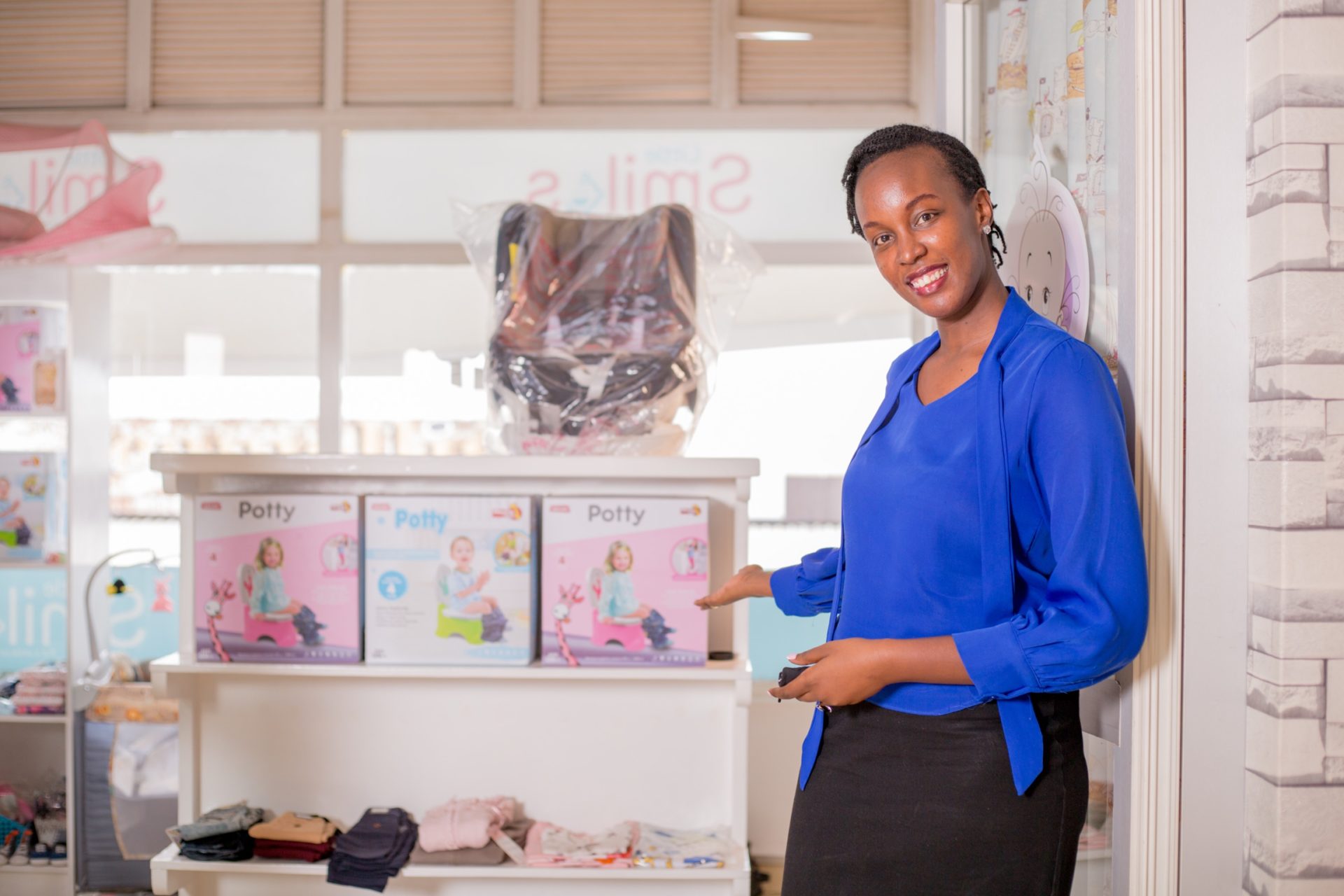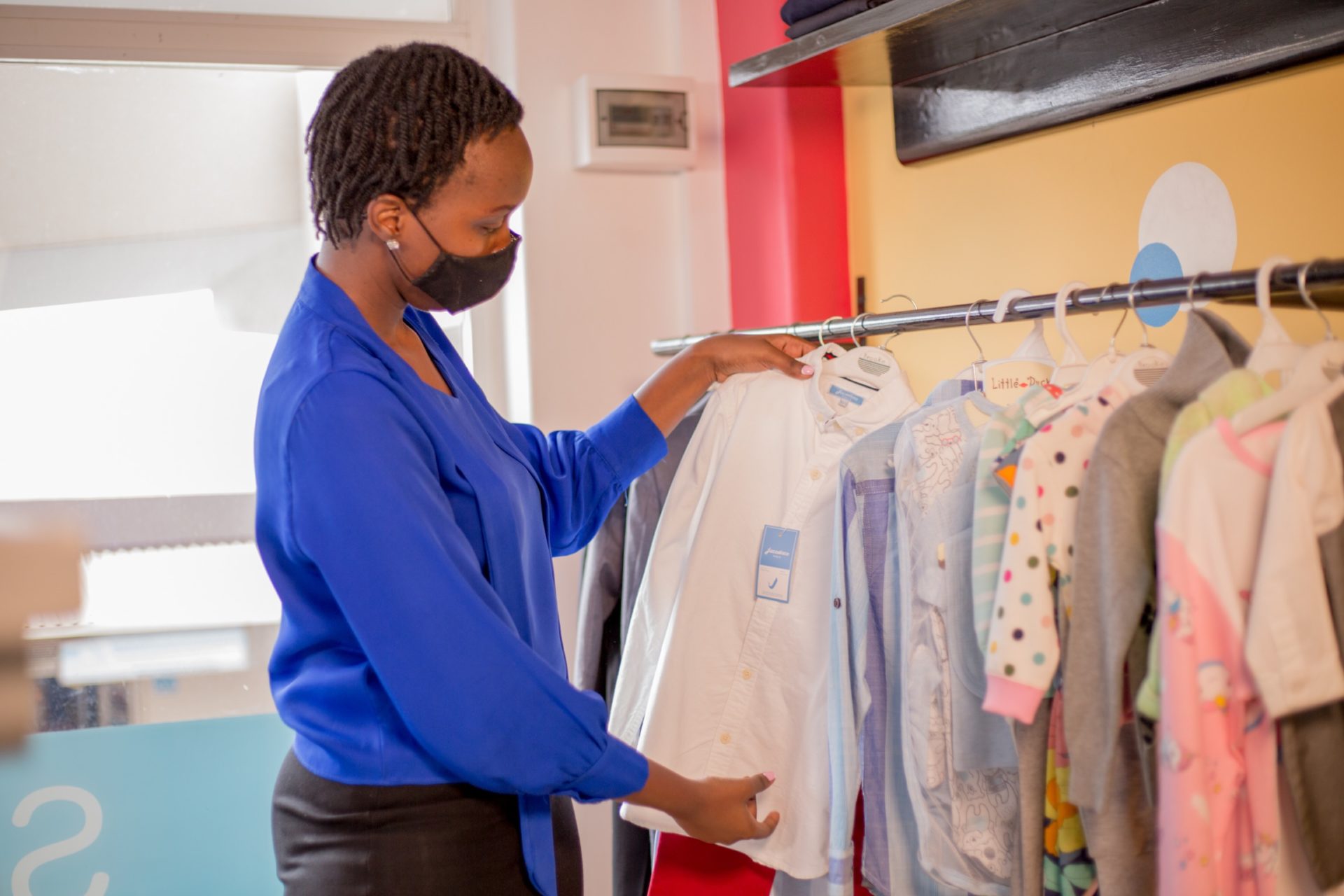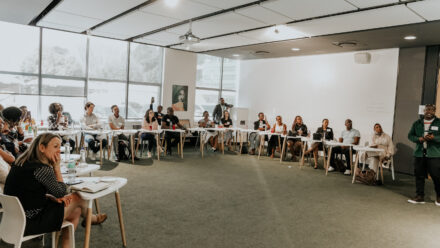Stronger Together – Building Business Resilience in Rwanda
- Name: Linda Grace Rugema
- Job title: Founder
- Company: Little Smiles
- Country: Rwanda
- Partners: Mastercard Foundation

The pandemic continues to affect many businesses across the globe, forcing entrepreneurs to adapt to the new normal. The African Management Institute in Rwanda caught up with Linda Grace Rugema, an entrepreneur in Kigali, to find out how she has kept her business going during these tough times and how she benefited from the AMI Business Survival Bootcamp programme.
Linda owns a children’s clothing and accessories store – Little Smiles – that offers a variety of products including clothes, shoes, furniture, and baby essentials like car seats, feeding chairs, and other accessories. She developed her business after she had her first baby and couldn’t access the quality and variety of children’s products she wanted. However, the pandemic brought a lot of challenges for her business.
“When the pandemic hit, our sales declined. There were periods of lockdown where our physical locations were closed and we still had to cover our operational costs. Getting stock has also been a struggle because shipment costs and times have increased. Maintaining good cash flow has been tough due to the decline in our sales, ” said Linda.
Linda learned about AMI’s Business Survival Bootcamp from a friend who had participated in the programme and decided to join.
“I signed up for the programme because I wanted to deal with the challenges I was facing as a business owner during the pandemic. I wanted to find better ways of managing my business so that I could stay in business. The training was resourceful, it came at a time when I really needed it. I was able to access the practical tools provided including the sales report took, the stock keeping tool, purchase and expenses tools which enabled me to manage and organise my business better.”

“What I liked the most about the AMI programme is the interactive sessions we had. Learning with AMI was fun and very practical. The class was lively. Listening to other businesses made me feel like I was not alone, which encouraged me to keep pushing.”
Through AMI’s Business Survival Bootcamp, Linda was able to better organise her business, set achievable and smart goals, and use the templates provided for her book keeping.
“I am using the different AMI tools, to ease my bookkeeping processes.”
The programme did not only benefit Linda but also her staff.
“My staff also got to experience the programme. After downloading the tools from the platform, I would share with them. This has really helped us assess our profits and run things better.”
Despite the pandemic, Linda has kept her business going and her goal is to make it a one-stop-shop for all baby accessories. She wants customers to be able to walk into her stores and find everything they need. She is also looking forward to expanding her Made in Rwanda Furniture Line, and which she believes will help diversify her product offering.
Linda encourages other entrepreneurs to never give up and keep working hard to get through these tough times. She urges them to join AMI programmes and utilise this opportunity to learn and gain skills that will support them on the road to recovery.
“Persevere, develop a new plan, be on the search for business relief funds, and join AMI programmes where you will also get a chance to learn from other entrepreneurs. We need to work together to find solutions for the challenges we are facing during this pandemic,” she said.
Related posts

From Ambition to Achievement: Esther’s Journey in Rwanda’s Hospitality Sector

AMI Nigeria Recognised for Driving SME Growth at BusinessDay Top 100 SMEs Conference
The African Management Institute (AMI) was recognised for its outstanding contribution to SME growth at the BusinessDay Top 100 Fastest Growing SMEs Conference held on Friday, 9th December 2024, at The Stable, Surulere, Lagos.

Empowering South African SMEs: AMI’s ESD Partnerships and Practical Training Solutions
Through Enterprise and Supplier Development (ESD) partnerships, AMI delivers tailored training programs to SMEs that promote resilience and competitiveness. This approach not only addresses the immediate needs of small businesses but also builds a foundation for long-term success.